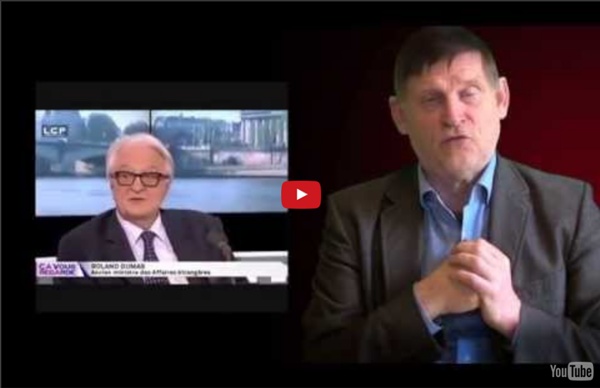Charlie, USA, Daesh : les 7 médiamensonges
Dominique de Villepin à propos de l'Etat islamique : 6 minutes d'intelligence et de lucidité - vidéo Dailymotion
Attentat de Nice - Responsables et coupables - L'analyse de François Asselineau
Publié le 23 juillet 2016 dans Entretiens d'actualité François Asselineau analyse les causes et les effets de l’attentat de Nice du 14 Juillet 2016, dans un entretien donné le 18 Juillet 2016. 1ere partie : 00:09. La 2ème partie sera mise en ligne très prochainement.
Related:
Related:



